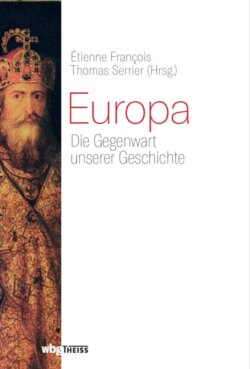Читать книгу Europa - Группа авторов - Страница 69
На сайте Литреса книга снята с продажи.
Literatur
ОглавлениеWłodzimierz BORODZIEJ, Versailles und Jalta und Potsdam, in: Hans Henning Hahn, Robert Traba (Hg.), Deutsch-polnische Erinnerungsorte, Bd. 3: Parallelen, Paderborn u.a. 2011, S. 360–380.
Jost DÜLFFER, Jalta, 4. Februar 1945. Der Zweite Weltkrieg und die Entstehung der bipolaren Welt, München 1998.
Timothy GARTON ASH, The Polish Revolution. Solidarity 1980–1982, London 1983.
William B. MCALLISTER et al., Toward „Thorough, Accurate and Reliable“. A History of the Foreign Relations of the United States Series, U.S. Department of State, Office of the Historian, Bureau of Public Affairs, 2015.
Kacper SZULECKI, „Freedom and peace are indivisible“. On the Czechoslovak and Polish dissident input to the European peace movement 1985–89, in: Richard Brier (Hg.), Entangled Protest: Transnational Perspectives on the History of Dissent in Eastern Europe and the Soviet Union, Osnabrück 2013, S. 199–229.
Stefan TROEBST, Jalta als europäischer Erinnerungsort, in: Religion & Gesellschaft in Ost und West 44 (2016), H. 5, S. 12–16.
1 Ruritanien ist ein fiktives Land, erfunden vom britischen Schriftsteller Anthony Hope, der mit diesem Namen ein Europa der Peripherie – von London aus betrachtet – bezeichnet (Anm. d. Red.).
2 Original: „When I first came to Poland I kept hearing a very strange word. ‚Yowta’, my new acquaintances sighed, ‚yowta!’, and conversation ebbed to melancholy silence. Did ‚yowta’ mean fate, I wondered, was it an expression like ‚that’s life’?“
3 Jost Dülffer, Jalta, 4. Februar 1945. Der Zweite Weltkrieg und die Entstehung der bipolaren Welt, München 1998, S. 30.
